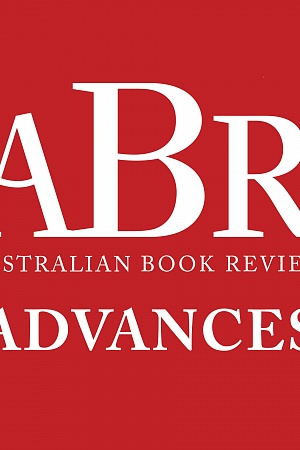Editorial - October 2023
Welcome to a special Indigenous issue of ABR. The timing feels momentous, two weeks out from a referendum which will decide whether there will be a new body within the Australian parliament advising on Indigenous concerns and interests: an ancillary instrument acknowledging Aboriginal peoples’ long-standing custodianship of land and the ongoing, adverse effects of colonisation.
An Indigenous issue in a magazine which has been at the forefront of Australian critical culture since 1961 raises thorny questions. ABR has for decades published knowledgeable, eloquent, and sophisticated analysis of books, and, more recently, of the arts and society, both from Australia and abroad. It should also be remembered that ABR commenced in a distinctly nationalist spirit, founded by Max Harris, Rosemary Wighton, and Geoffrey Dutton in 1961 for the purpose of ‘noticing’ every new Australian book. Readers of the burgeoning ABR archive might raise an eyebrow when they come across the review of a sheep-dog-rearing manual from 1979 (one year after ABR was revived in a second series), but there was a serious intent behind this project: to recognise, engage with – even just ‘notice’ – Australian culture and output, given its historically marginalised position in a publishing and cultural environment dominated by London.
This conception of Australian culture, as the ABR archive also confirms, was not inclusive of cultural activity that was occurring across Australia – most notably, among Indigenous people. And yet, as in so many archives, the story is not total: folded into reviews, here and there, we glimpse the voices of Indigenous people and the recognition of fuller histories.
And so, it is nothing new (as nothing is new!) to notice, elevate, and advance the voices and experiences of one section of society. It is nothing new to do this for historical purposes – as Harris, Wighton, and Dutton did.
It is also nothing new for there to be argument about this, and for this argument to make us consider why we read – indeed, what function we want critics, editors, magazines, and publishers to serve. In his An Anthology of Australian Verse (1952), George Mackaness organised poems according to those that had ‘intrinsic poetical value’ and those that had ‘historical importance’. This was to the dismay of many critics and poets.
When in 1963, as poetry reader for Jacaranda Press, Judith Wright picked up a manuscript by Noonuccal woman Kathleen Walker, she felt the poems’ ‘merciless accusations, their notes of mourning and challenge’ and ‘could almost hear the voices of the critics in advance denying that this was poetry at all’. The title poem of that collection, We Are Going (1964), concluded: ‘the scrubs are gone, the hunting and the laughter. / The eagle is gone, the emu and the kangaroo are gone from this place. / The bora ring is gone. / The corroboree is gone. / And we are going.’ We Are Going became the second highest-selling collection of Australian poetry (after Banjo Paterson). Critics kept asking was it ‘poetry at all’?
Walker, for her part, made the decision to change her name to Oodgeroo, meaning paperbark tree in Noonuccal language, while Queen Elizabeth II was visiting Australia in 1970 to celebrate the bicentenary of Captain James Cook’s exploration of the east coast of Australia. Oodgeroo had by then, for ten years, been state secretary of the Federal Council for the Advancement of Aborigines and Torres Strait Islanders (FCAATSI), and that same bicentennial day was part of an early service at La Perouse in Sydney to commemorate ‘the dead tribes who had been wiped out by the early English invaders’, as she wrote in that landmark publication, Paperbark: A collection of Black Australian writings (1990). Pastor Don Brady told her that morning that the success of her poetry – its capacity to communicate to Indigenous and non-Indigenous Australians – came from her connection to the land: ‘Kathy, you must be a tribal sister to the paperbark trees because you write so good.’
What was good, and who said it was, was starting to shift. Oodgeroo was clear about it: ‘whatever comes from the heart is good’.
At this moment, two weeks out, we’re taking stock. Our reviewers and commentators, poets and interviewees, have taken us, time and time again, to Indigenous lives, to those who have felt ‘totally powerless’, as Lowitja O’Donoghue once described her younger self, to those who like Oodgeroo and O’Donoghue found a way to make their voices blaze.
You may have noticed the preponderance of Indigenous women in this issue. It is both an accident and, in retrospect, a reflection of our own inclinations and interests as guest editors. We want to ‘notice’ the voices of Indigenous women.
We hope you enjoy this issue featuring the strongest-ever representation of First Nations reviewers, commentators, interviews, poems, and books in ABR’s complex history.







Leave a comment
If you are an ABR subscriber, you will need to sign in to post a comment.
If you have forgotten your sign in details, or if you receive an error message when trying to submit your comment, please email your comment (and the name of the article to which it relates) to ABR Comments. We will review your comment and, subject to approval, we will post it under your name.
Please note that all comments must be approved by ABR and comply with our Terms & Conditions.